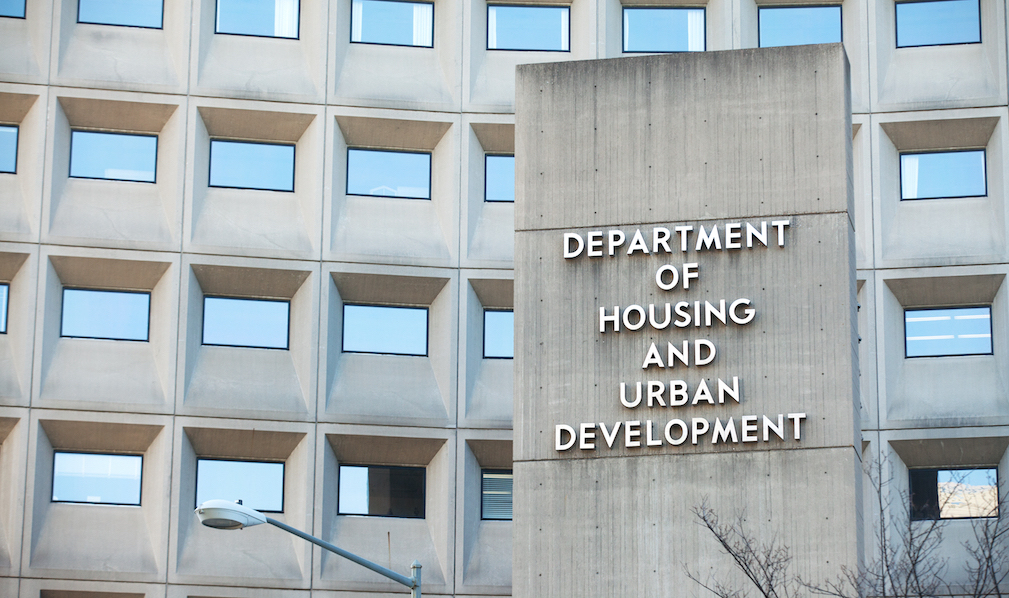In recent days, both Quicken Loans, the nation’s largest lender, and The National Association of Realtors, the nations’ largest trade organization, have called on the Department of Housing and Urban Development to withdraw its proposed rule to amend the HUD interpretation of the Fair Housing Act’s disparate impact standard.
Bill Emerson, vice chairman of Quicken Loans, expressed his company’s concern about the impact of the proposed rule changes during the pandemic in a letter sent to HUD Deputy Secretary Brian Montgomery on Friday.
“We recognize that the proposed changes are intended to clarify the use of disparate impact in housing discrimination cases. We agree that unclear rules in the housing and mortgage markets can, and often do, constrain lending and investment in the space, harming those the rules are intended to help.
“However, legitimate concerns have been raised about how the proposed rule proposed would make it difficult to address some of the more challenging systemic issues of discrimination that the Fair Housing Act should be used to address,” the letter continues.
“We are living in a pivotal moment of American history, with much of the nation looking more deeply at the systemic effects of discrimination throughout our society and economy. In the spirit of that moment, policymakers and industry participants alike should look beyond the surface forms of discrimination to those that lie beneath, because the effects are often no less destructive,” the letter states.
“We believe that HUD should continue to focus on the deeper forms of discrimination, and has an opportunity to work together with lenders, consumer advocates, and civil rights experts to find a common ground proposal on disparate impact that is fair, clear, and remains a strong and effective tool for our nation in combatting all forms of housing discrimination.”
In its letter released on Monday, NAR said that HUD’s revisions place too heavy a burden on the ability of parties to bring legitimate initial disparate impact claims. NAR President Vince Malta went on to say there is broad consensus that “now is not the time to issue a regulation that could hinder further progress toward addressing ongoing systemic racism.”
Rather, he suggested this is a time to explore ways to work together “to eliminate unnecessary barriers to housing opportunity and advance policies that allow more Americans to fully participate in the American Dream.”
As such, NAR is “respectfully” asking that HUD withdraw its proposed rule to amend its interpretation of the Fair Housing Act’s disparate impact standard.
When asked about timing, NAR said this was a conversation the organization had been having internally, with its partner real estate associations and with Fair Housing Groups for over a month, following the wave of protests that came in response to George Floyd’s murder.
“We determined from those conversations that this was the appropriate time to call on HUD to withdraw its proposed role, and submitted the letter to the Department as soon as it was finalized,” NAR said.
Bryan Greene, NAR’s director of fair housing policy, said that a REALTOR’s livelihood depends on his or her ability to sell homes, so “it is in every REALTOR’s interests to eliminate barriers that unfairly deny housing opportunities to any segments of our population.”
“According to disparate impact doctrine, practices that disproportionately turn some groups away and can’t be justified as necessary on business grounds – or that could be served in a less discriminatory way – including lending practices, housing practices, and governmental policies, can be challenged by consumers,” he said.
“Most business practices in housing and lending are necessary to evaluate a consumer’s creditworthiness and ability to purchase, but it is also critical that we ensure none of these requirements unfairly target or deter certain groups from pursuing the American Dream of homeownership,” Greene added.
Last August, we reported that HUD had proposed making changes to the nation’s fair housing rules, a move that fair housing advocates claimed was part of a Trump administration effort to “gut” federal protections against housing discrimination.
At its most basic, the updated guidelines revised the current loose, three-step threshold for Fair Housing violations and imposed a specific, five-step approach that would require regulators to prove intentional discrimination on the lender’s behalf.





